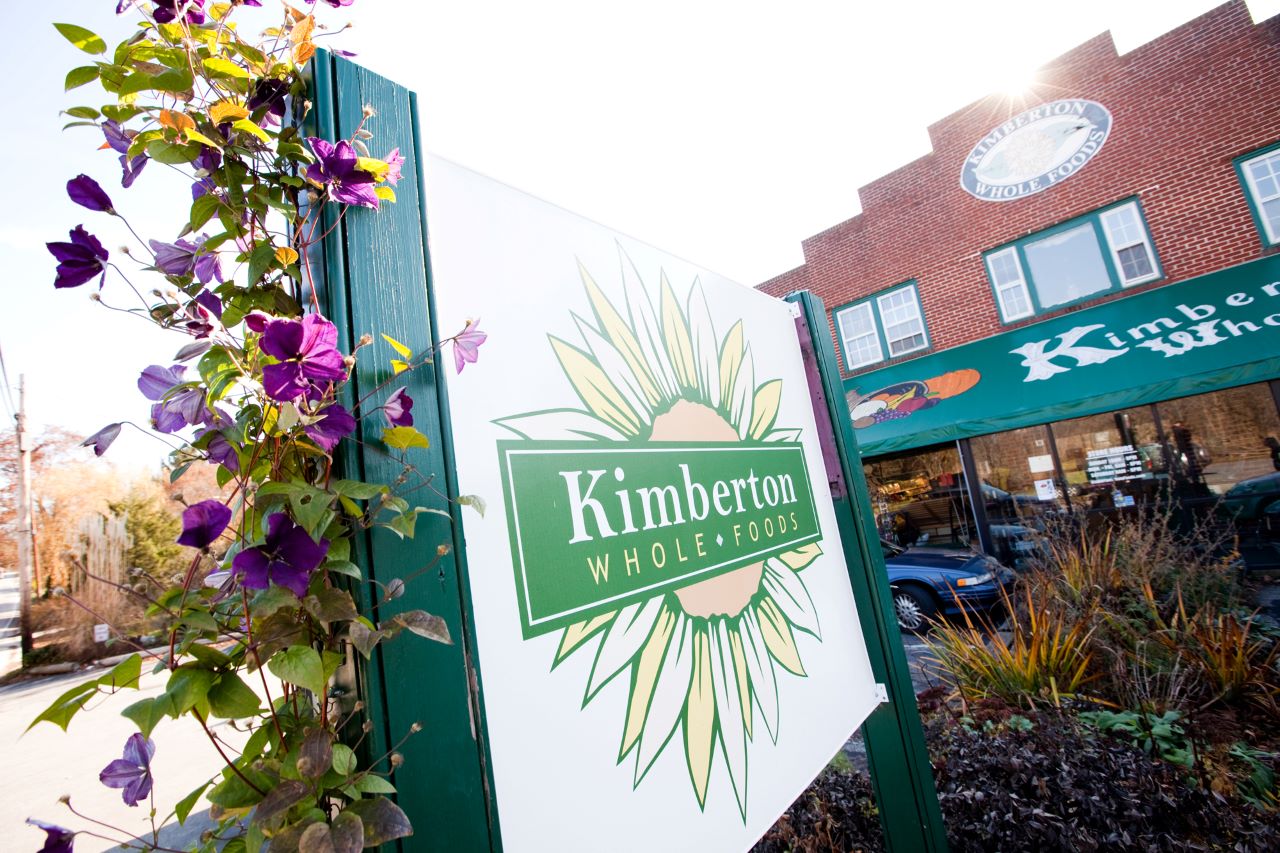Meet the owner committed to a grocery store with a lofty vision
Terry Brett spent a recent fall Friday driving five hours to help a young organic farmer with her ambitious plan to save her family’s organic dairy and other dairies in North Central Pennsylvania — it’s just one in a long list of contributions Brett and his team at Kimberton Whole Foods have made to local and sustainable agriculture. What started in the mid-80s as a modest farm store has ballooned into seven independent retail locations throughout Southeastern Pennsylvania, all committed to what Brett regards as the keys to our future: our ability to take care of our soil, our farmland, and the people who farm it. Brett reflects on his past, while giving an unflinching assessment of what’s needed to sustain our future:
Why did you get into this work?
It’s a wild journey that started when I was a despondent teenager who ultimately dropped out of college in search of a way to make the world a better place. I ended up in San Diego in 1975, where I was introduced to organic agriculture. In the 80s, my wife, Pat, and I made our way to a farm in Pennsylvania and started saving money so we could homestead. I became the first yogurt maker at Seven Stars Farm (top-rated on Cornucopia’s Organic Dairy Scorecard). In 1986, Pat opened the farm store at Seven Stars. So, before we were Kimberton Whole Foods, we were a store with the sole purpose of supporting a farm.
Why do we need stores like Kimberton in our community?
I think it’s true for a lot of independent owners that profits are not the sole motive for being in business. What we’re trying to do at Kimberton is create a supportive marketplace for farmers engaging in regenerative agriculture. If we don’t take care of our soil and our farmland and the people who work it, we don’t really have much of a future.
What are the biggest barriers to your goals?
The distribution system — the way products show up on the shelf — can be predatory. The result is unfair charges that make it tough for smaller brands to compete. We have a small warehouse and packing operation, but we’re meeting with the township about building a much larger warehouse that could handle more products directly. This will allow us to better support smaller brands, while keeping prices down so more people can afford the highest quality food.
What are the most important considerations you’d like eaters to make when choosing how to spend their money?
Transparency — who owns the business, where the product is being produced, or the system in which the brand operates. Whether the brand is supporting, rather than damaging, the farming entities it represents. With Farmer Focus, for example, you can track your chicken to the farmer and actual people. The more you get into the corporate world, the mechanism for making money can be antithetical to supporting farmers.
How can increased transparency change the food system?
More and more brands are getting gobbled up by multinational corporations. The informed consumer will often abandon a company that is purchased by a corporate processor. At Kimberton, our customers are counting on us to vet whether a company is worth a spot on our shelves. But they still have to read the labels and be alert to changes.
Can you give an example of an independent brand you’ve supported?
Painterland Sisters (the newest brand on Cornucopia’s Organic Yogurt Scorecard) entered distribution with the help of Kimberton Whole Foods’ interest. Supporting brands run by people with integrity fills a need in a world that’s craving connection. It is why we have always been working to expand — the bigger our footprint, the more beneficial we can be to smaller producers. We are relatively small, but if three or four or five farms exist because of our support, then I feel that we are fulfilling our mission
What call to action do you have for Cornucopia’s supporters?
When considering the daily food purchases we make, it’s vitally important that we choose farming operations that have an eye toward truly regenerative agriculture. Eaters can make a difference, but we have to become informed. It’s why Cornucopia and independent retailers are so important: we need to get the message out.
This Q&A was originally published in the winter issue of The Cultivator, Cornucopia’s quarterly newsletter. Donate today, and we’ll mail you the spring issue, filled with stories you won’t find anywhere else.


